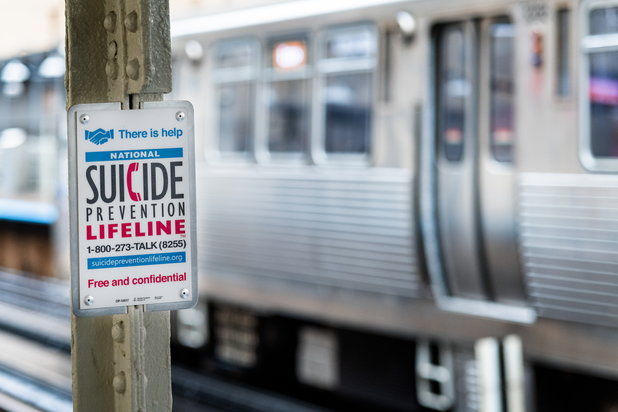Suicide is the 10th leading cause of death in the United States, with an average of 129 suicides per day. In 2017, almost 50,000 Americans died by suicide.
September is National Suicide Prevention Month, and National Suicide Prevention Week occurs the Monday-Sunday surrounding World Suicide Prevention Day (which is on September 10).
This week is an essential time to share resources, tools, and stories in an effort to prevent future suicides from occurring.
Warning Signs of Suicide
There isn't a single factor that causes suicidal ideation. Many times, loved ones express they had no idea the affected person was struggling. Thus, everyone needs to understand the extensive symptoms that could indicate suicidal thoughts or behavior. These warning signs include:
- Talking about wanting to die
- Talking about themes of hopelessness, lack of purpose, or despair
- Talking about feeling trapped or being burdensome to others
- Increased use of mood-altering substances (drugs or alcohol)
- Increased sense of anxiety or depression
- Changes in sleep or appetite patterns
- Displaying increased anger or rage
- Isolating from others
- Having previous suicide attempts
- Experiencing a recent, major stressor (job loss, breakup)
- Having access to lethal means (guns, controlled substances)
These warning signs are not always obvious. That said, it is important to pay attention to any changes that concern you.
Supporting Someone Struggling
You may not believe that you can truly help someone who is struggling with suicidal thoughts. However, this is a misconception! As a loved one, you have an influential role in providing valuable support and validation.
First, if anyone discloses suicidal thoughts, take them seriously! It's not about "guessing" if they are serious; it's not about analyzing each word they say.
Be careful to avoid minimizing their problems or giving blanket advice. Although your intentions may be altruistic, someone who is suicidal is experiencing deep despair.
Instead, it is far more beneficial to sit with your loved one and let them share their story. Ask open-ended questions. Be mindful of your emotions and reactions, and attempt to stay neutral with your expressions. Becoming too overreactive can cause defensiveness, which can lead to someone shutting down.
Finally, you should collaborate on finding the best resources for help. The National Suicide Prevention Lifeline is a great place to start. This free resource provides 24/7 confidential crisis support. It can also provide assistance in obtaining local resources.
If your loved one is unwilling to take these steps and you are concerned about their safety, it is best to call 911.
Suicide Prevention Week Activities
This year's theme is Connect. Communicate. Care. Organizations around the country are creating platforms to raise awareness within their communities.
Lime green is the official color for mental health awareness. You can show your support by wearing t-shirts, wristbands, or pins with this color. Tag your photos on social media to raise awareness. Trending tags are #suicideprevention and #stigmafree.
The best way to raise awareness is to educate yourself first. Learn about suicide, its impact, and the warning signs you need to know. Share with others, get involved in local events, and do your part in reducing the shame and misconceptions surrounding mental illness.
One person can make a tremendous difference. Do what you can to be that person!
|
If you or someone you know is seeking help from addiction, please visit our directory of treatment centers or call 800-772-8219 to speak to a treatment specialist. |







